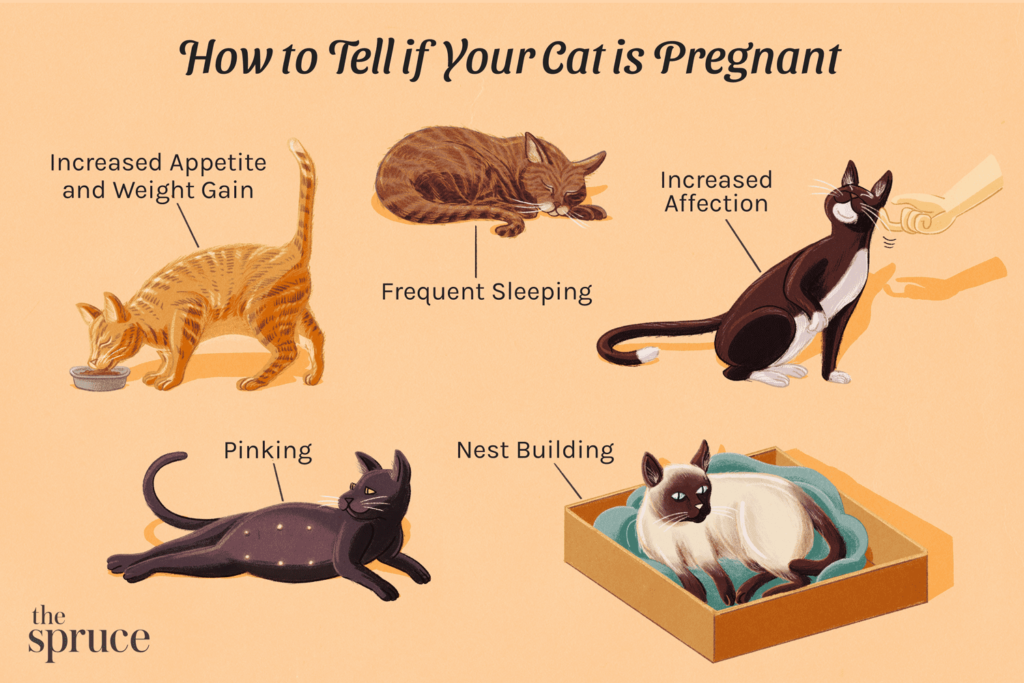
Cat Pregnancy Information: A Comprehensive Guide
Cats are beloved companions that bring joy and affection into our lives. As responsible pet owners, it’s crucial to understand the intricacies of feline pregnancy to ensure the well-being of both the mother and her kittens. This comprehensive guide delves into the essential aspects of cat pregnancy, providing valuable information for cat owners and aspiring breeders alike.
Signs of Pregnancy
Determining whether a cat is pregnant can be challenging, especially during the early stages. However, there are subtle signs that may indicate pregnancy:
- Increased appetite: Pregnant cats may experience an increased appetite due to the growing demands of their bodies and the developing kittens.
- Weight gain: As the pregnancy progresses, the cat’s abdomen will gradually expand due to the growth of the kittens.
- Behavioral changes: Pregnant cats may exhibit nesting behaviors, such as seeking out secluded areas to prepare for the birth. They may also become more affectionate and clingy.
- Enlarged nipples: The nipples of pregnant cats will become more prominent and pinker in color.
- Morning sickness: Some cats may experience nausea and vomiting, similar to morning sickness in humans.
Gestation Period
The average gestation period for cats is approximately 63-67 days, with most pregnancies lasting between 58 and 70 days. The length of the pregnancy can vary depending on the breed, the number of kittens, and the individual cat’s health.
Prenatal Care
Providing proper prenatal care is essential for the health of the pregnant cat and her kittens. Regular veterinary checkups are crucial to monitor the cat’s health, track the pregnancy’s progress, and address any potential complications.
- Nutrition: Pregnant cats require a high-quality diet that provides adequate nutrients for both themselves and their developing kittens. Consider switching to a kitten food or a specially formulated pregnancy diet.
- Exercise: Moderate exercise is beneficial for pregnant cats, but avoid strenuous activities that could put stress on the abdomen.
- Stress reduction: Stress can negatively impact the pregnancy, so provide a calm and comfortable environment for the cat.
Labor and Delivery
The labor process in cats typically begins with contractions, which can last for several hours. The cat may exhibit restlessness, panting, and vocalizations. The kittens are usually born headfirst, with a few minutes to several hours between each birth.
- Assisting with delivery: In most cases, cats can deliver their kittens without assistance. However, if there are any complications or if the cat is struggling, seek immediate veterinary attention.
- Postpartum care: After giving birth, the mother cat will need rest and proper care. Provide a quiet and comfortable space for her and her kittens. Ensure she has access to plenty of food, water, and a clean litter box.
Kitten Care
Newborn kittens are helpless and rely entirely on their mother for nourishment and care.
- Nursing: Kittens will instinctively nurse from their mother. Ensure the mother has adequate milk production and that the kittens are nursing regularly.
- Grooming: The mother cat will groom her kittens to stimulate their elimination and keep them clean.
- Temperature regulation: Kittens cannot regulate their own body temperature, so provide a warm and draft-free environment.
- Socialization: As the kittens grow, they will begin to explore their surroundings and interact with their mother and siblings. Provide opportunities for socialization and play to promote their development.
Complications
While most cat pregnancies proceed smoothly, there are potential complications that can arise.
- Dystocia: Difficulty giving birth, which may require veterinary intervention.
- Premature birth: Kittens born before 60 days of gestation may have underdeveloped organs and require intensive care.
- Stillbirth: Kittens that are born dead or die shortly after birth.
- Eclampsia: A condition caused by a calcium deficiency, which can lead to seizures and death.
- Mastitis: Infection of the mammary glands, which can affect the mother’s ability to nurse her kittens.
Preventing Pregnancy
If you do not intend to breed your cat, it’s crucial to prevent pregnancy. Spaying, or surgical sterilization, is the most effective and humane method of preventing unwanted litters. Spaying involves removing the cat’s ovaries and uterus, eliminating the possibility of pregnancy.
Conclusion
Cat pregnancy is a complex and fascinating process that requires responsible care and attention. By understanding the signs of pregnancy, providing proper prenatal care, assisting with labor and delivery, and ensuring the well-being of the kittens, cat owners can help ensure a healthy and successful pregnancy for their feline companions. Remember, spaying is the most effective way to prevent unwanted pregnancies and contribute to the welfare of cats in your community.